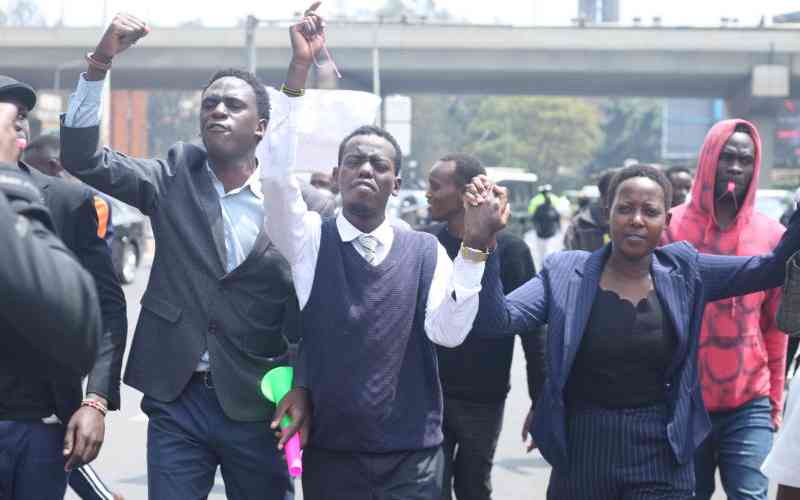University of Nairobi students protest along the streets of Nairobi citing increased hostel fee, inequality in the new University funding model among others. [File, Standard]
×
The Standard e-Paper
Stay Informed, Even Offline

Public universities are once again on the brink of financial collapse, with operations at risk of grinding to a halt and thousands of students facing exclusion from sitting end-of-semester exams.
This follows the government's decision to freeze funding for over 200,000 students under the new funding model after a court order in September declared the new funding model illegal.







